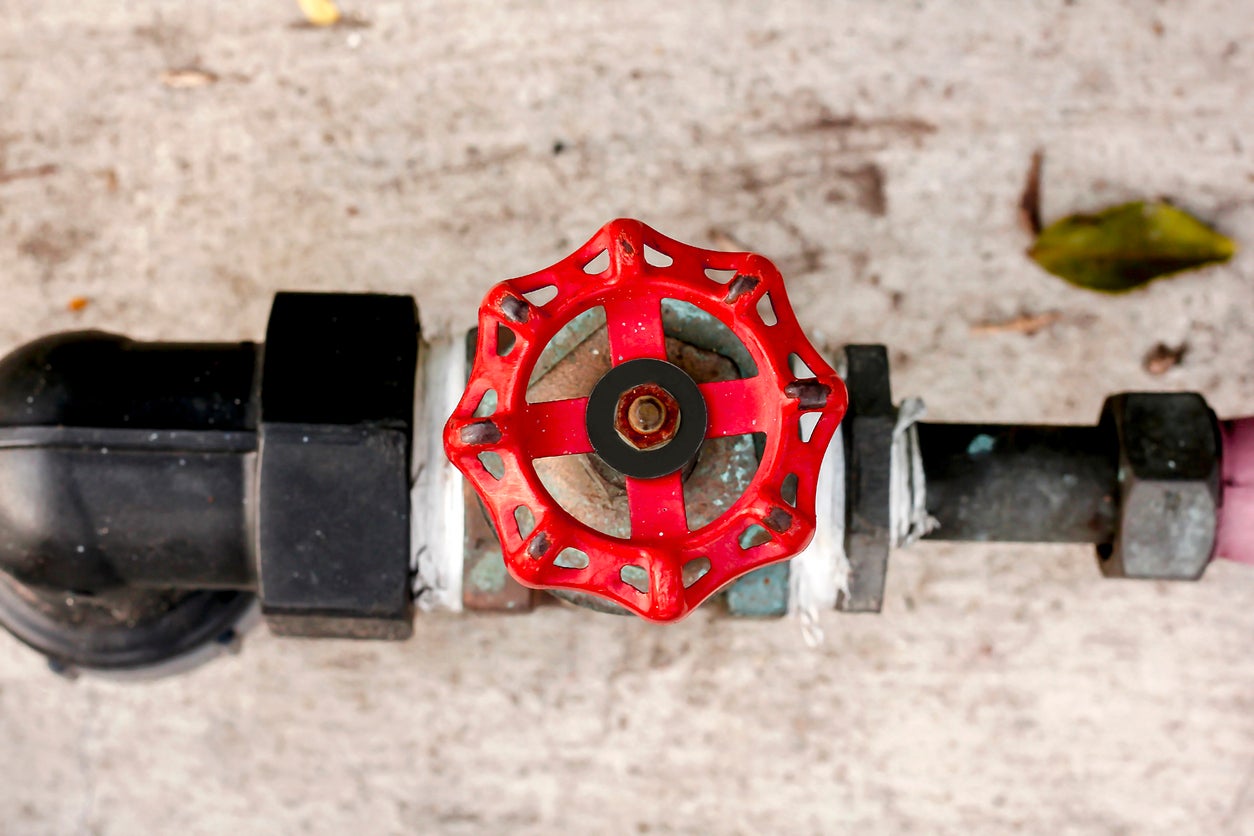Step-by-Step Instructions for Dealing with Low Water Pressure in Your Home
Step-by-Step Instructions for Dealing with Low Water Pressure in Your Home
Blog Article
The content following next relating to Low Water Pressure in the House? is indeed fascinating. Read it for yourself and figure out what you think about it.

Low tide stress in your home can be an irritating issue, influencing whatever from showering to cleaning meals. If you're experiencing weak water circulation, there are a number of feasible reasons and remedies to check out. In this guide, we'll review usual factors for low water pressure and practical steps to attend to the problem effectively.
Introduction to Low Water Stress
Low water stress takes place when the flow of water from your taps, showers, and various other components is weaker than common. This can make day-to-day jobs more challenging and much less reliable. Understanding the causes of low water pressure is vital to locating the appropriate service.
Typical Reasons For Low Tide Pressure
Faulty Stress Regulators
Pressure regulators are in charge of maintaining consistent water stress in your home. If they malfunction, it can cause low water stress or unequal flow throughout your house.
Metropolitan Water System Issues
Sometimes, the issue lies outside your home. Metropolitan water system problems, such as main line leaks or upkeep job, can temporarily lower water pressure in your location.
Pipeline Obstructions
Gradually, pipelines can come to be blocked with natural resource, sediment, or debris, restricting the circulation of water. This is an usual issue in older homes with galvanized steel pipelines.
Rust
Corrosion within pipes can cause leakages and minimized water stress. Corrosion accumulation can tighten water flow, especially in aging plumbing systems.
Just How to Detect Low Water Stress
Inspecting Pipelines
Inspect visible pipelines for indicators of leaks, rust, or obstructions. Take note of any type of uncommon sounds, such as knocking or rattling pipes, which could suggest issues within the plumbing system.
Consulting with a Plumber
If you're unable to determine the source of low tide stress, consider working with a professional plumber to conduct a detailed assessment. They can determine underlying issues and suggest ideal remedies.
Inspecting Taps and Fixtures
Beginning by examining the water stress at different faucets and fixtures throughout your home. If the concern is isolated to certain areas, it might indicate local troubles.
Do It Yourself Solutions to Repair Low Water Stress
Flushing Water Heater
Sediment build-up in the water heater can limit flow and lower effectiveness. Purging the storage tank periodically aids eliminate sediment and preserve optimum performance.
Inspecting Pressure Regulatory Authority
Make certain that the pressure regulator is working appropriately. Adjusting or changing the regulator can assist recover appropriate water stress throughout your home.
Cleaning Aerators and Showerheads
Mineral deposits can collect in aerators and showerheads, lowering water flow. Remove and clean these elements on a regular basis to boost water stress.
Clearing Up Clogs in Pipeline
For minor obstructions, attempt utilizing a plumbing snake or chemical drainpipe cleaner to clear blockages in pipes. Be cautious when utilizing chemicals and follow safety standards.
When to Call a Specialist Plumber
If do it yourself initiatives fail to deal with the problem or if you think considerable plumbing issues, it's ideal to seek aid from a qualified plumber. They have the expertise and devices to address complex concerns securely and successfully.
Preventive Measures to Preserve Water Stress
Setting Up a Pressure Booster
Take into consideration setting up a pressure booster pump to boost water pressure in areas with constantly reduced flow. This can be particularly helpful for multi-story homes or residential properties with high-demand components.
Monitoring Water Use
Be mindful of water use practices and stay clear of ill-using the plumbing system. Straightforward changes, such as astonishing showers and washing loads, can aid keep ample water stress.
Routine Upkeep
Arrange regular maintenance for your plumbing system to prevent problems such as rust, leaks, and blockages. Attending to small issues early can assist stay clear of even more considerable repair work later on.
Verdict
Handling low water stress can be aggravating, yet determining the underlying causes and implementing ideal services can recover optimal circulation throughout your home. Whether it's cleaning up aerators, checking pipelines, or seeking advice from a plumber, taking proactive actions can make certain a stable supply of water for your day-to-day requirements.
How to Fix Low Water Pressure In Your Home
Municipal Water Supply Issues
Scheduled maintenance, high demand, and water main breaks are all potential causes for low water pressure within a city or county’s water lines. While there’s not much you can do to personally fix a problem with your city or county’s water supply system, you can play a big role in documenting the issue and alerting those who can.
How to fix it:
Ask your neighbors if they are experiencing any issues with low water pressure. If multiple homes are affected, it’s likely related to the city’s water line. Contact the local Water Authority to see if there is any maintenance taking place that might be affecting your supply. Also let them know of your specific issues. If other homeowners report the same issues, they’ll know that there could be a larger issue to look into. Faulty Fixtures
A damaged or clogged shower head, faucet or appliance is the first thing we’d suggest checking, especially if low water pressure appears to be isolated to a specific area of your home.
How to fix it:
First, turn off the main water supply to your home. Check the affected appliances for build-up or debris. In the case of a faucet, you can simply unscrew the aerator at the tip of the faucet. Showerheads should be fully detached from the water pipe. While the appliances are detached, you may want to check the water supply to determine if the fixtures were in fact the issue. To clean, soak the showerhead or aerator in vinegar and brush off any visible debris. Reattach the fixtures and check the water pressure again. If it is still low, there is likely a deeper issue at hand, which can be determined by a professional plumber. Pipe Obstructions
Mineral deposits, rust or other debris within water pipes can lead to blockages or corrosion over time.
How to fix it:
When you think of a clog, you probably think of a drain clog. While there are many DIY solutions to clearing a drain, clogs in a water pipe will almost always require the help of a professional plumber. A plumber will be able to locate the affected pipe and clean out any debris or mineral deposit buildup. In severe cases, the pipe may need to be replaced. Your plumber might also recommend a water softening system to remove the minerals from your home’s water supply that can contribute to pipe blockages over time.
Plumbing Leak
Undetected water line leaks can divert water away from your residential pipes, reducing the water pressure in your fixtures.
How to fix it:
Check your water meter by turning off all water sources and monitoring the meter for any movement, which could be a clear indicator of a potential leak. Check all visible pipes for signs of leaking, including water stains, active dripping or damp spots around the pipe. Inspect fixtures, including faucets and showerheads, for any drips. Test the pressure but recording the pressure with the main water valve shut off. Leave off for a few hours and test again. A significant drop in pressure is a clear sign of a leak. https://kiddcoplumbing.com/plumbing-blog/how-to-fix-low-water-pressure/

Hopefully you enjoyed reading our article on . Thanks a lot for finding the time to read our posting. For those who appreciated our page plz do not forget to pass it around. I value reading our article about .
Call Report this page